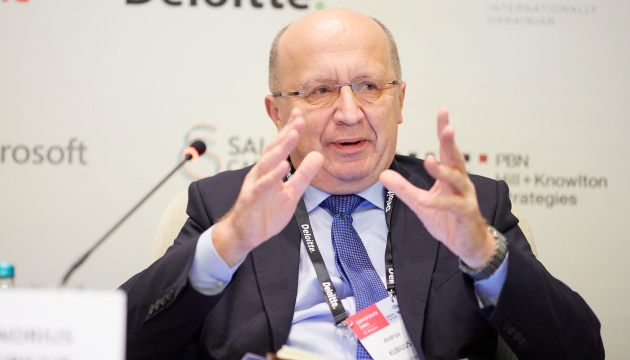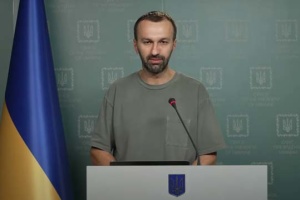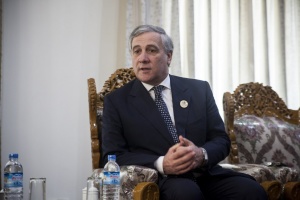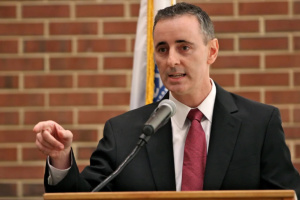
EU drawing up White Paper on Defense - one of chapters to be dedicated to Ukraine
This was stated in Brussels during hearings within the framework of the European Parliament's subcommittee on security and defense by European Commissioner for Defense and Space Andrius Kubilius, an Ukrinform correspondent reports.
The EU should concentrate efforts on the three main chapters: Ukraine, EU’s own capabilities and defense production, and defense funding, said Kubilius.
Why are we talking about Ukraine in this White Paper? Because, in my view, if we - the West, the EU - fail with military support for Ukraine, the consequences of such a failure will mean that a possible military aggression, the so-called extreme military contingency, may be even more extreme,” said Kubilius.
He recalled that the main task he received when he was appointed to the position is to prepare the European Union for the most extreme military contingencies, which in practice means the EU's readiness to respond to Russian aggression against any of the EU member states.
According to the outlook by the German and other intelligence services, the European Commissioner noted, Russia may be ready for such an act of aggression within the next five years. If the collective West, including the EU and the US, fails to help Ukraine in the fight against Russian invaders, such a threat may become a reality even faster.
Kubilius separately emphasized that assistance to Ukraine is not only about allocating the necessary funding and providing military support, but also requires the West, together with Ukraine, to win the narrative war imposed by Putin.
“In this narrative war, in my view, we are losing to Putin for the time being. He is able to spread this message that Ukraine is not able to win, that Ukraine is losing, and that it would be much better for Ukraine to immediately go for some kind of peace agreement under Putin’s conditions. We must try to change that, and not only in our statements, but with real practical plans,” the European Commission representative emphasized, noting that the EU must show Putin that he will not be able to achieve anything in Ukraine, that international support is indeed maintained and even growing.
Kubilius expressed his conviction that no matter how events develop in 2025, the “Ukraine” issues and Russian threats will not disappear. In order to achieve a real cessation of hostilities and end this war sooner, the European Union must increase assistance to Ukraine, make it more planned and effective.
He reiterated the fact that Western military support, both from the EU and the United States, does not exceed 0.1% of annual GDP, while Russia spends 9% of GDP. “This is reality,” said Kubilius. As per official figures, the EU’s (military – ed.) support over the three years amounted to almost EUR 44 billion, about EUR 14 billion per year. Taken the EU GDP into account, which is about EUR 18 trillion, this is indeed less than 0.1%, Kubilius said.
According to the Commissioner, the cost of military assistance from the United States are approximately the same. Since Russia’s full-scale invasion, the United States has provided Ukraine with military aid worth about $60 billion, $20 billion per year. The US GDP is about $25 trillion, so this figure of aid to Ukraine is also less than 0.1% of the country's GDP.
In the Commissioner’s opinion, the West can do more but questions remain of how it could be done and what goals are to be achieved with military assistance to Ukraine. Kubilius called for having a clear plan. need to send a message to Putin that we will stand with Ukraine for a long time, we will support and increase its defense capabilities," the European Commission representative emphasized.
As is known, since the beginning of the full-scale Russian invasion, the EU has been providing Ukraine with political, economic, financial, humanitarian and military assistance.
This support continues in the new European Parliament, in the Council of the EU, and among the members of the newly formed European Commission. On his first day in office, 1 December 2024, the President of the European Council António Costa, the EU High Representative/Vice-President of the European Commission Kaja Kallas and the European Commissioner for Enlargement Marta Kos paid a visit to Kyiv, which was of very high symbolic and political significance.




